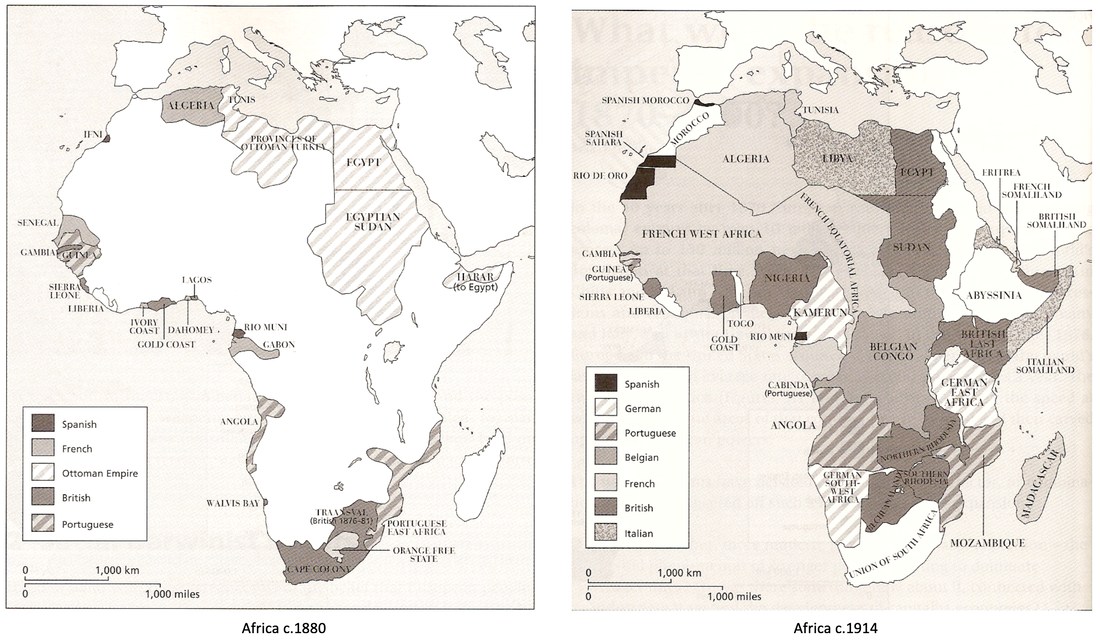Lesson 1 - Introduction - What was 'New Imperialism'.
Imperialism and empire building wasn't new in the late 19th century. You will have studied many examples of one country dominating and subjecting another to control in various forms. These two Crash Course films will provide you with an overview of essentials from the 15th-17th centuries.
|
|
|
What was new about 'new imperialism'?
|
What was different about the 'new imperialism' of the late 19th century was the speed of new imperial control that extended well areas of the world.
In the 40 years after 1870 European countries expanded their existing colonial empires by over 25 million square kilometres and acquired in the process up to 150 million new subjects, about a tenth of the world's population at that time. They also established spheres of influence in China and in Latin America, and were joined in their search for concessions and economic privileges by the newly unified states of Germany and Italy, and by the United States and Japan. In the 36 years after 1878, Europe and the United States acquired about 17.4 per cent of the world's land surface at an average rate of some 620,000 square kilometres a year. |
|

Activity
1. Compare and contrast the two maps. Identify at least two similarities between the two maps and four significant differences.
1. Compare and contrast the two maps. Identify at least two similarities between the two maps and four significant differences.
|
|
2. Read through the slides 'What caused the 'New 'Imperialism'. I have identified eight causes of imperialism.
Combine the 8 causes so that you are left with only 3 or 4 factors.
Finally, write the introduction to an essay question 'What caused New Imperialism?' Remember to address the question and outline (signpost) the factors you include. |
Extras and extension
Khan Academy and World History Project have a good unit on New Imperialism. The historian Trevor Getz identifies five factors in his explanation of the causes of New Imperialism and concludes that 'the big, global trend that had industrial powers rushing to claim new colonies depended on the interaction of these factors each time a new colony was created. For example, a typical "man-on-the-spot" likely used new weapons (technology) to conquer people he thought were inferior (racism) to expand his business (industrialism/capitalism) and be politically rewarded back home for making his country proud (nationalism).
Khan Academy and World History Project have a good unit on New Imperialism. The historian Trevor Getz identifies five factors in his explanation of the causes of New Imperialism and concludes that 'the big, global trend that had industrial powers rushing to claim new colonies depended on the interaction of these factors each time a new colony was created. For example, a typical "man-on-the-spot" likely used new weapons (technology) to conquer people he thought were inferior (racism) to expand his business (industrialism/capitalism) and be politically rewarded back home for making his country proud (nationalism).
|
The introductory film is also worth watching as a good overview of some of the issues you will be encountering in this unit.
For more, see the project's homepage at: https://www.oerproject.com/World-History |
|
